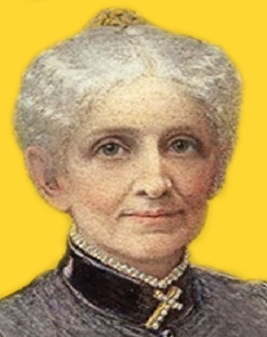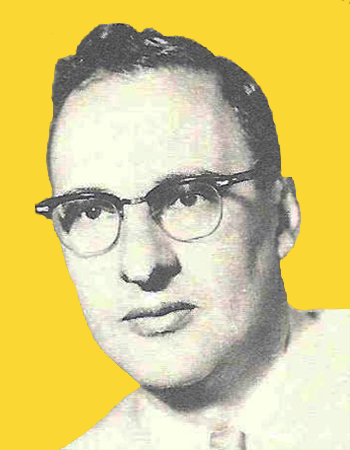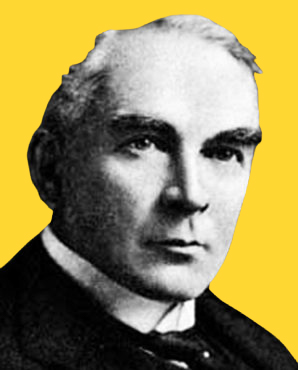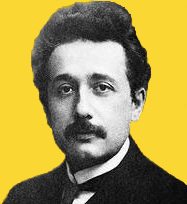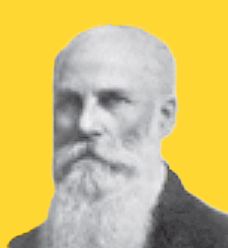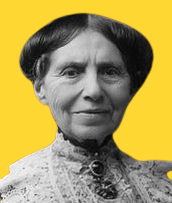Life Understood ~ The Mysteries of Our World
The theory or explanation 2 of material phenomena now put befon you has been gradually evolving, and includes and accounts for ever known so-called fact of the material world, whether physical or so-callec mental, accepted by science, or of the class called occult. This theory 5 is daily, although sometimes unknowingly, being corroborated by leaden in natural science all over the world. Many of the most important facts have been confirmed since they were first brought to my knowledge. THE MYSTERIES OF OUR WORLD “But we speak the wisdom of God in a mystery, even the hidden wisdom, io which God ordained before the world unto our glory” (I Cor. 2: 7). Our planet is full of mystery, and of the universe only enough is known to make those who are thought to know a great deal, partially recognise their ignorance. “And if any man think that he knoweth any thing, he knoweth nothing yet as he ought to know” (I Cor. 812). is Professor Drummond, in Natural Law in the Spiritual World, writes: “The one subject upon which all scientific men are agreed, the one theme upon which all alike become eloquent, the one strain of pathos in all their writing and speaking and thinking, concerns that final uncertainty, that utter blackness of darkness bounding their work on every side.” This 30 darkness is ignorance, the mystery of evil, the only cause of the apparent limitation in every direction. This darkness has now been dissipated. “Occult” Phenomena.—Amongst the phenomena known to investigators for which it has hitherto been manifestly impossible to account in any rational way, are those connected with thought-reading, prophesy- 25 ing, clairvoyance, clairaudience, second sight, psychometry, somnambulism, duplicated personality, suggestion, hypnotism, spiritualism, theosophy, the ancient temples, faith-healers, the Indian Yogis, Mohammedan fakirs, and the witches and sorcerers of olden days. So ignorant have we been of such matters that until quite recently their investigation 30 was tabooed by scientific men on the ground that there was no method of obtaining exact knowledge concerning them. There are many other mysterious phenomena, such as ghosts and visions, miracles and enchantments, and marvellous powers that various men have exercised, of which there are many instances recorded in the oldest known writings, in the Bible, 35 and throughout all history. These phenomena are now no longer mysterious, and by reversal of the many falsities in connection with them they serve as waymarks to better, and ultimately to permanent things, the ideas of God. Scientific Difficulties.—Even if we put on one side all that may be considered “miraculous,” those facts which are called “scientific” are 40 just as bewildering. Take, for instance, the ether, which is full of paradoxes. Is a material earth, as stated, flying at the rate of about eighteen miles per second through this ether, the density of which is believed to be four hundred and eighty times greater than that of the densest matter on the earth? To what are due the deviations in the movements of the moon and Mercury ? Why does the ninth satellite of Saturn revolve in a direction contrary to the others, and contrary to the general rotation of our solar system? Why do the projections of the western hemisphere corre- 5 spend to the indentations of the eastern? Why does not the sun get appreciably cooler ? Why is a comet attracted, and the particles of its tail apparently repelled, by the sun ? Why is the view of so-called natural laws constantly being altered? Why, according to Professor Jevons, can only about one mathematical problem out of a million be solved? Why does 10 chemical affinity work in different ways on different substances ? What is electricity? What indeed is vibration or force? What is heat? Why is a bar of steel magnetised under a shock if held in one position and not in another? Why does matter sometimes repel and sometimes attract matter? Why at the temperature of liquid air does phosphorus lose its violent 15 affinity for oxygen and sulphuric acid no longer turn litmus paper red? Why does aluminium, which does not decompose water when cold or oxidize at ordinary temperatures, decompose water violently and visibly oxidize with water containing the slightest trace of mercury? Why do extreme heat and cold produce similar effects? Why does a gyroscope 20 running at a very high speed present a strong resistance to any force used to alter its position ? Why does every substance, including water, contract upon cooling, while water and bismuth alone expand just before freezing? What is the cause of the movements of the planets and their satellites? What is gravity? To what are the varying cohesive, elastic, frictional, 25 viscous, electric, and magnetic properties due ? What are the laws underlying the freedom and mutual constraints of molecules? Such questions have been puzzling both physicists and chemists for centuries.1 It is a remarkable thing that the more the materialist has investigated such matters, and the greater his experience of them, the more uncertain 30 has appeared his knowledge and the further he has seemed from any fixed laws. Take, for instance, astronomy. Until recently it was thought the laws governing the movements of the solar system were absolutely fixed and well known. It is now being found that we had practically no real knowledge of them. Astrologers, who laugh at what they speak of as the 35 ignorance of western astronomers, will tell you wonderful things that they have learned from applying the facts brought to light by the astronomers, who, confining themselves to the evidence of their five senses, have failed to reap the reward of their discoveries. “Astronomy is the most perfect science, because we know least about it” (Modern Science: A Criticism, 40 Edward Carpenter). • All these difficulties can now be demonstrably accounted for by the real metaphysician, who alone has perfect control over the seeming laws of physics. 1 “All the facts of this order [early evolution of matter] belong to the category 45 of unexplained phenomena of which nature is full, and which become more numerous as soon as we penetrate into unexplored regions. The complexity of things seems to increase the more they are studied” (The Evolution of Matter, Dr. LeBon). ■ Medical Difficulties.—"When we come to the subject about whic we should know most, namely, man, how little we find is general known! He is a mass of mystery and contradictions. Take medic practice, for instance. The only certain thing about it is its uncertaint 5 and yet some of the greatest men have given up their lifetime to its stuc and almost broken their hearts at different times over their apparei inability to help a sufferer. Few professions have given, and are givir the world up to the present day, such noble examples of self-sacrifice : the medical profession and those connected with it. Yet, is disease lessei io ing ? Dr. James Johnson, surgeon to King William IV, said: “ I declare rr conscientious opinion, founded on long observation and reflection, that there was not a single physician, surgeon, apothecary, man-midwif chemist, druggist or drug on the face of the earth, there would be le: sickness and less mortality.” Why, according to Sir Victor Horsley, d 15 over ten thousand patients die annually in London alone after operations Why did the Metropolitan Asylums Board recently report in one year alon over three thousand cases of mistaken diagnosis admitted to their isolatio hospitals? Why did the well-known Dr. Abercrombie write: “Medicin is the science of guessing”? Why does a person apparently die of fright 20 In fact, when is he really dead, since, as will be shown, he does not reall die—that is, pass into another state of consciousness—for several days aftc the appearance of death? Why does a man’s hair turn white in a night—i the case of a Bengalee criminal, in front of the spectators ? Why does sea sickness almost invariably disappear in moments of danger ? Why does on 25 person catch a disease and another under similar circumstances escape it In fact, what is the cause (so-called) of many diseases? Sir John Forbes m.d., f.r.s., f.r.c.p., said: “No systematic or theoretical classification 0 diseases or of therapeutic agents ever yet promulgated, is true, or anythin; like the truth, and none can be adopted as a safe guide in practice.” Wh; 30 is the practice of medicine so different in different countries and at differen periods ? Dr. Mason Goode, a well-known Professor, writes: “The effects 0 medicine on the human system are in the highest degree uncertain except, indeed, that it has already destroyed more lives than war, pesti 35 lence, and famine, all combined. Why did Dr. Benjamin Watcrhousi write: “ I am sick of learned quackery,” and Oliver Wendell Holmes say in a lecture before the Harvard Medical School: “ I firmly believe that i: the whole materia medica could be sunk to the bottom of the sea, it would b< all the better for mankind and the worse for the fishes” ? Why in allopath] 40 is a large amount of a drug given that causes opposite symptoms to those 0: the disease, and in homoeopathy a small amount of a drug that produces the same symptoms, and why do both contrary systems produce a seeming cure ? One of the latest ideas is to give drugs to increase fevers, on tlu ground that a fever is nature’s method of supplying increased blood tc 45 parts affected, so as to get rid of local disease. Why is this so when ice is freely used, and previously the temperature was kept up, both methods producing like results? Why is it that “what is one man’s meat is another man’s poison”? To what is the effect of infinitesimal homoeopathic doses due ? Why does a harmless draught surreptitiously substituted for a narcotic mixture equally send a patient to sleep ? Why have the drugs used been so constantly changed ? In fact, why in civilised countries is the use of drugs being given up altogether? Sir Almroth Wright informs me that “it is useless to expect from the drugs with which we are at present acquainted, destruction of the bacteria in the interior of the organism,” and that “the 5 method of extinguishing bacteria by the knife will be finally given up.” Why are talismans so believed in ? What is the explanation of the deaths and cures of sickness produced at a distance by the witch doctors in Central Africa, and of the wonderful facts related by thoroughly credible travellers in Siberia, Abyssinia, and elsewhere? Why did the Aissouan 10 Arabs, who a little time ago visited London, devour venomous snakes, and allow themselves to be stung by scorpions without harm, after being apparently hypnotised by their chief? To what may the mysterious results be ascribed for which five hundred people were burnt in Zurich in one day, and ten thousand in Germany in a year, with the object of stamping 15 out witchcraft? What sustains the army of so-called quacks? What caused Lavoisier to say: “Medicine came into the world with a twin-brother called Charlatanism,” and Voltaire to say: “The art of medicine consists in amusing the patient while nature cures the disease”? Why did Sir James Paget write to Sir Henry Acland, in 1866, as follows: “What 2c unsatisfactory . . . cases these are! This clever, charming, and widely known lady will some day disgrace us all by being juggled out of her maladies by some bold quack, who, by mere force of assertion, will give her the will to bear, or forget, or suppress all the turbulences of her nervous system”? 25 Why do we believe more in the power of drugs to heal than in the power of God? Is God incapable or is He unwilling to heal our sin and sickness? What do we mean by the term God when we say that God heals ? What is the cause of the apparent healing done by numerous sects, and of that done at Bethshan, at the holy baths of Lourdes, and elsewhere ? How is it 30 that such circumstantial records of the healing of various diseases by the touch of English kings have been handed down to us ? What is the explanation of King Menelik’s healing of snake bites at a distance, and of the many varieties of faith-healers and other different forms of what appears to be mental healing ? None of this apparent healing is of any permanent 35 value, as will be seen hereafter. There is only one method of healing that rests upon a scientific basis. On the same scientific basis rest substantial replies to all questions that can arise. Physiological Difficulties.—What is the connection, if any, between mind and brain? Why did Sir J. Crichton-Browne, m.d., ll.d., f.r.s., 40 writing of important physiological and pathological discoveries, say that they “ have not, it will be found, brought us one hair’s breadth nearer the comprehension of the way in which the physical basis of mind is related to mind at all” ?2 How are “nerve stimuli ” transmuted into sensation or ideas ? How do the nerves affect the muscles, either to contract or release 45 them? Why do nerves seem to ache after they are no longer there, for instance, when a leg has been amputated ? How is the inverted image : the back of the retina transmitted to the brain ? Why do we not see even thing upside down ? What is the process whereby the likeness of the parei is transmitted to the offspring ? How is it that such great physical change 5 suddenly take place in a child just before the moment of birth ? What the medium between the so-called mental and physical systems ? There is an extensive literature on the subject which sets forth man different theories and speculative explanations, and yet no one has eve pretended to understand such matters until recently. • io Unaccounted-for Human Capacity.—Here again there have bee numerous mysteries. How did Bidder, the eminent civil engineer, seen as his grand-daughter told me, to see in the air the answer to any mathe matical question, without calculating? Others, called “calculating boys, have done the same. What is the source from which Moses, Isaial 15 Jeremiah, Daniel, and Huldah the prophetess, with such people as Jaco', Boehme, Andrew Jackson Davis, and many others, have drawn their sur prising knowledge? To what were the wonderful powers of Emanuc Swedenborg due? By what means did the natives know at once in th Egyptian bazaars of the death of the heroic Gordon ? How does news trave 20 so quickly in Central Africa and other places ? Why does one speake electrify an audience, and another produce no effect, and, as is a matter o common knowledge, the speeches of one member of Parliament sound wel and read badly, and vice versa? Why does a “rot” sometimes set in a cricket? Why is one man lucky and another man unlucky? What was 25 Rarey’s secret for taming horses, and what was that of Major Wood ? Wh; did not the tiger spring upon Sir Charles Napier, but slink away whei gazed at fearlessly ? 3 What were the laws known and utilised by Daniel in the lions’ den, am by his three co-religionists in the fiery furnace ? It can now be proved that 30 all men have latent within them marvellous powers, and can successful!} apply the same laws for their own benefit and that of others. Unaccounted-for Animal Wonders.—There are many things hen. that no one hitherto has been able to explain. How is it that a dog or cal will find its way straight home, after having been taken away one hundred 35 miles by train? Why do cubs of wild animals, for instance, in moments of danger, obey the dam without a sound being uttered or a movement apparently taking place ? How do ants convey to each other a whole series of instructions concerning places to be visited and work to be done, as far as one can tell, by merely momentarily touching each other’s antenna; ? 40 Where does a cat find the fulcrum whereby it falls on its paws even if held only just above the ground with its feet upwards ? How do soft insects, such as the smaller death watch and the book louse make their sounds ? We now find that the only difference between the material man and material animal is one of degree, and man has unconsciously limited the 45 powers of animals, instead of improving them. Philosophic Difficulties.—There are also other things of vital importance that have puzzled all thinkers for ages. For instance, why is evil permitted to come into the world ? This, until recent times, has been the greatest puzzle to all schools of thought. Why have most of us apparently found ourselves aimlessly wandering “ on the shores of time, 5 disappointed travellers tossed to and fro by adverse circumstances, inevitably subject to sin, disease, and death ?” Why in this world, on the one hand, is there sometimes, without any apparent reason, such wonderful happiness, though always temporary, while, on the other hand, all nature teems with instances of the most diabolical ferocity and awful misery, 10 making a living hell for countless millions of the seeming lower forms of life, patient, tortured sufferers? What is the reason of so-called evolution? Is there anything besides Darwin’s natural selection, or, as Wallace puts it, the struggle for existence ? Huxley spoke of predetermined lines of modification, and since then 15 some biologists, endeavouring to explain evolution, have suggested what they provisionally called Bathmism, that is, a tendency towards progress inherent in organisms. All these great thinkers have acknowledged that there must be some further explanation which some day would be discovered. ' ao Finally, why has the world appeared full of mysteries for so long, and why is it that, until recently, the more we learned the more difficulties appeared, and the less we found we really knew? “Knowledge is proud that he has learned so much. Wisdom is humble that he knows no more” (Cowper). The following words of Professor Jevons show our previous 25 lamentable ignorance: “It might be readily shown that in whatever direction we extend our investigations and successfully harmonise a few facts, the result is only to raise up a host of other unexplained facts.” “ Even religion and therapeutics need regenerating ” (Mary Baker Eddy). No one admits this more hilly than the leading exponents of these two great would- 30 be benefactors of mankind! “At thirty, man suspects himself a fool, Knows it at forty and reforms his plan; At fifty chides his infamous delay, Pushes his prudent purpose to resolve.” 35 We might add that at sixty he regrets his lost opportunities, and at seventy thinks that it is too late to do anything. One can readily imagine an intelligent, well-informed visitant to this earth for the first time, reporting nearly the whole of its inhabitants to be afflicted with an ignorance of the truth about their own affairs that amounted to insanity. 40 Such a pitiable state of ignorance does the mass of mankind appear to be in, that we find a well-known writer, E. W. Maunder in The Astronomy of the Bible, saying: “ Science therefore cannot go back to the absolute beginnings of things, or forward to the absolute ends of things. It cannot reason about the way matter and energy came into existence, or how they will 45 cease to exist; it cannot reason about time or space, as such, but only in the relation of them to phenomena that can be observed. . . . Science cannot inquire into them [the facts that are stated in the first chapter of Genesis] for the purpose of checking their accuracy; it must accept them as it accept the fundamental law that governs its own working, without the possibilit of proof.” This shows something fundamentally wrong in the line c research. Surely we have forgotten the injunction, “ Open thou mine eyes 5 that I may behold wondrous things out of thy law” (Ps. 119 :i8). Dr. J. W. Heysinger, in Spirit and Matter before the Bar of Moder Science, has said: “What is wanted is to see science put on her spectacles and get honestly down to hard work on these difficult but universal an. most important subjects. When that time comes, and it is rapidly coming 10 psychism, in its broadest sense, will be tried by a jury of its peers, and th verdict will be in accordance with the evidence of all mankind, everywher and from the beginning, and will not represent merely a self-sufficien ignoring of the whole testimony, and an a priori judgment of the whol case. The facts will not be superciliously thrown aside, the evidence wil 15 not be perverted nor garbled, inconvenient facts will not be suppressed, th truth will be elicited as it would be by skilled lawyers, and the opinioi rendered as it would be by able and impartial judges, and science will thei win a crown of imperishable glory. Nay, more, in that day the judgmen will be found reflected upon and applicable to many other great problems 20 now the despair of science, and solid achievements will come in al directions. Science is clearly moving in the direction of the spiritual nothing can be more certain.” This prophecy is of interest, as it is now fulfilled, and “solid achieve ments ” are coming in all directions. 25 The Mystery of God.—“Amid the mysteries which become im mysterious the more they are thought about, there will ever remain the om absolute certainty, that man is ever in the presence of an infinite and eterna energy from which all things proceed” (Herbert Spencer). “It is difficult tc attain and dangerous to publish, the knowledge of the true God” (Cicero). 30 It is well known, and referred to in the Bible, that what the earl} Christians taught, was looked upon as a mystery, and that there were various grades of learners. St. Clement of Alexandria mentions the “ minoi mysteries, which have some foundation of instruction . . . and the greal mysteries, in which nothing remains to be learned of the universe.” Ik 35 also says that the Gnosis “ has descended by transmission to a few, having been imparted unwritten by the Apostles” (Anti-Nicene Library, VcA. XII). There are numerous references of this kind in the writings of the early Fathers. “Without controversy great is the mystery of godliness” (I Tim. 3 :16). What is the difference, if any, between Jesus the Christ and 40 the ideal Christ that Paul taught us was the wisdom and power of God? Why are wc told to have only one God in the Bible and yet told in the Prayer Book that “ the Father is God, the Son is God, and the I loly Ghost is God. And yet there are not three Gods, but one God”? Why does our Prayer Book, which is a schedule to an Act of Parliament, speak through- 45 out of us as the Children of Israel, of Abraham, or of Isaac? Why does the preface of the only book in England of which the perpetual copyright is retained, the authorised translation of the Bible, couple England with 1 De Natura Dcorum, Abbe d’OIivito translation. Zion, both words being in italics? ‘‘We speak the wisdom of God in a mystery, even the hidden wisdom, which God ordained before the world unto our glory ” (I Cor. 2 :y). This Mystery “Finished.”—“In the days of the voice of the seventh angel, when he shall begin to sound, the mystery of God should be finished, as 5 he hath declared to his servants the prophets” (Rev. 10:7). “Ignorance of truth is the cause of all misery” (Gautama Buddha). “ Ye shall know the truth, and the truth shall make you free” (John 8 : 32). This mystery, which is thus referred to by the great Apocalyptic reader of thought, is the mystery of good which arises from ignorance of the 10 laws of eternal Mind, the fact being that God, good, is nevei absent. “The light shineth in darkness; and the darkness comprehended it not” (John 1: 5). This mystery is now solved, reason and revelation reconciled. The only practical solution of this “perplexing problem of human existence” may be found in the simple teachings, and is illustrated in the 15 little understood life of Jesus the Christ. When intelligently considered, even the mysticism shrouding the Godhead disappears, leaving a practical knowledge of God. All mystery disappears as we gain the scientific practical understanding of his statements. “ There is nothing covered, that shall not be revealed” (Luke 12:2). We appear gradually to obtain, not 30 only a knowledge of material things, but the scientific understanding of God that gives life everlasting. The prayer, “ Give us, dear God, again on earth the lost chord of Christ,” is being divinely answered, and again the song, “Peace on earth, goodwill toward men,” floats o’er the earth.
Footnotes
2 “To make hypotheses, to verify them by experiments, then to attempt to connect, by the aid of generalisations, the facts discovered, represents the stages 45 necessary for the building up of all our knowledge” (The Evolution of Matter, Dr. G. Le Bon).
3 “The Hygienic Uses of Imagination.” Address on Psychology, delivered at the Annual Meeting of the British Medical Association, 1889.
4 One who faced a tiger in the jungle until it slunk away, on being asked how he was able to exercise such control, replied: “Because I have conquered the tiger in my own nature.”

